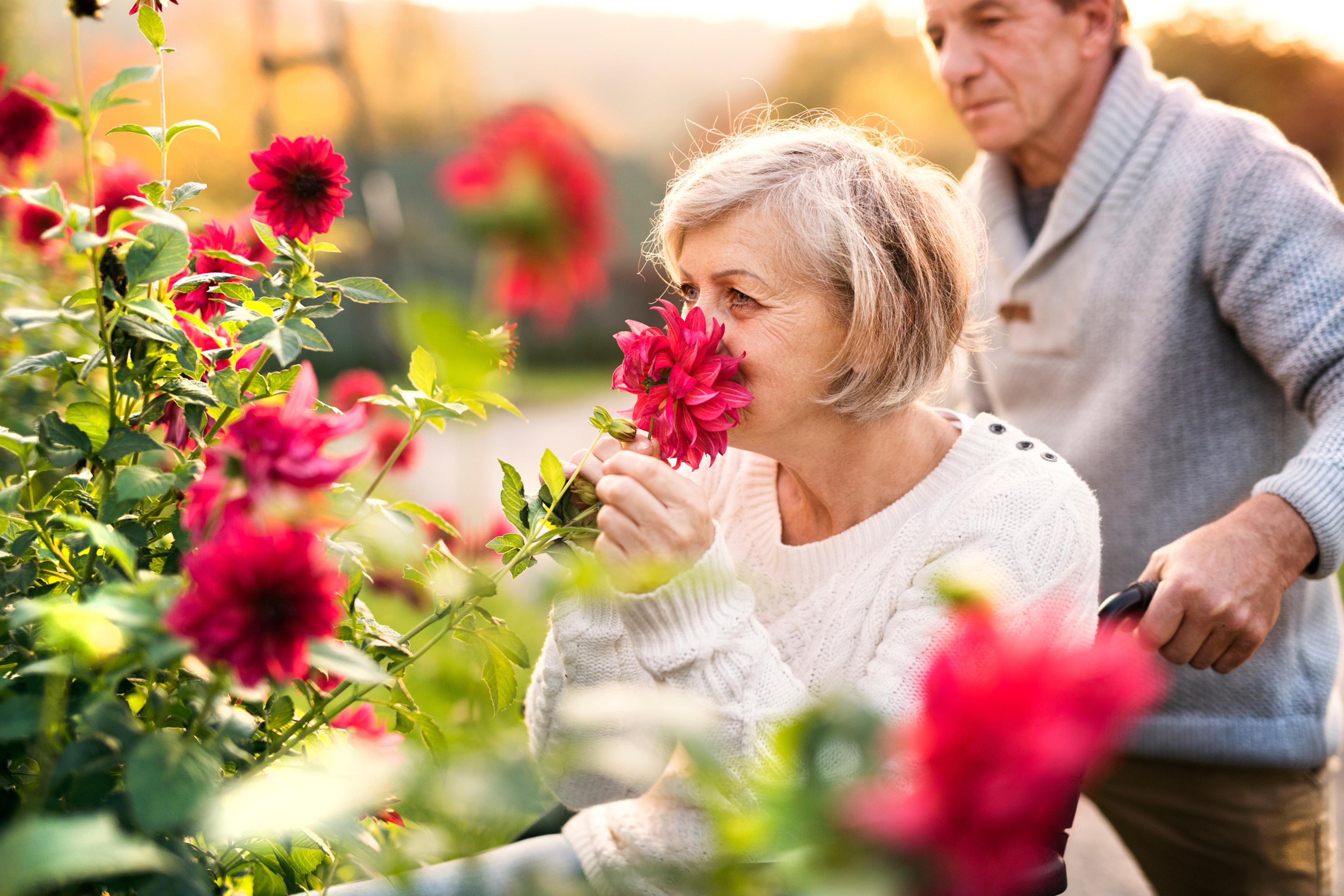Benefits of Healing Gardens
A Healthier Michigan
| 3 min read

Healing gardens are often found near medical centers, hospitals, rehabilitation centers and long-term assisted living facilities for a reason. It is somewhat common knowledge that being around nature, fresh air, and pleasant images or aromas from plants can be soothing. But are there actual healing benefits to healing gardens?
Research supports multiple benefits of healing gardens, including a 2023 study on different healing garden design elements that touts the positive impact of high levels of accessibility, water elements, flowers, quiet noise levels, and space for outdoor activities.
Gardens stimulate the senses
Gardens include plants and open air, allowing for stimulation from garden elements such as rustling leaves, wind and breezes, light filtered through leaves and plants, and ideally the attraction or introduction of wildlife such as birds, insects, butterflies, and more. All these elements can stimulate various senses and engage the mind.
Additionally, many if not all plants in gardens should be safe to handle or touch. They should be displayed in a way that visitors or users of the garden can touch them, smell them, and interact with them, according to a study on healing gardens in therapeutic centers published in Psychiatry Investigation. Purposeful stimulation of the sense is an important element of therapeutic care, especially for the elderly or those in long-term assisted living.
Gardens can help reduce pain perception
While gardens and nature cannot reverse the cause of pain, time spent in healing gardens has been shown to reduce pain perception in patients, allowing them relief from focused pain, according to work by environmental psychologist Dr. Roger Ulrich. This in turn has been correlated with faster recoveries and better outcomes for patients compared to patients without healing garden access according to Dr. Ulrich in Scientific American.
Gardens can help attention and focus
Healing gardens provide an opportunity for soothing elements that help attention and focus, according to a study in the Frontiers of Architectural Research. These benefits can be even more pronounced for patients with mental or neurological disorders, or chronic anxiety and depression. This includes those who are in long-term assisted living, therapeutic living, or rehabilitation.
Gardens can help reduce or manage stress levels
In general, time spent in nature, foliage, flowers and plants are connected to more manageable stress levels and stress reduction. According to a 2021 study in SSM Population Health, even 20 minutes spent outside in a garden can improve mood, with the peak benefit after 80-90 minutes (about 1 and a half hours) spent in nature.
If guided meditation or activities can be held in these outdoor spaces or healing gardens, the positive effects are more pronounced. According to the same study, nature-based therapies such as forest bathing, group gardening, green interventions for patients stuck inside, were all positive on patients’ moods and stress levels. Without access to healing gardens or safe, quiet, calm outdoor spaces, many of these nature-based therapies would be harder to accomplish or much less accessible for these patients.
Gardens provide opportunity and safe places to walk
It is also important to make sure these healing gardens are physically and socially accessible for patients with mobility or ambulatory issues who can also benefit greatly from healing gardens in this way. Making sure there is ample room for walking visitors and those in wheelchairs or mobility chairs. Accessibility features such as seating, restroom access, and handholds or handrails, are vital elements of any healing garden to make these benefits accessible to all.
These healing gardens are also generally a safe place away from vehicular traffic and outside distractions, especially when the garden is at a hospital or long-term care facility.





